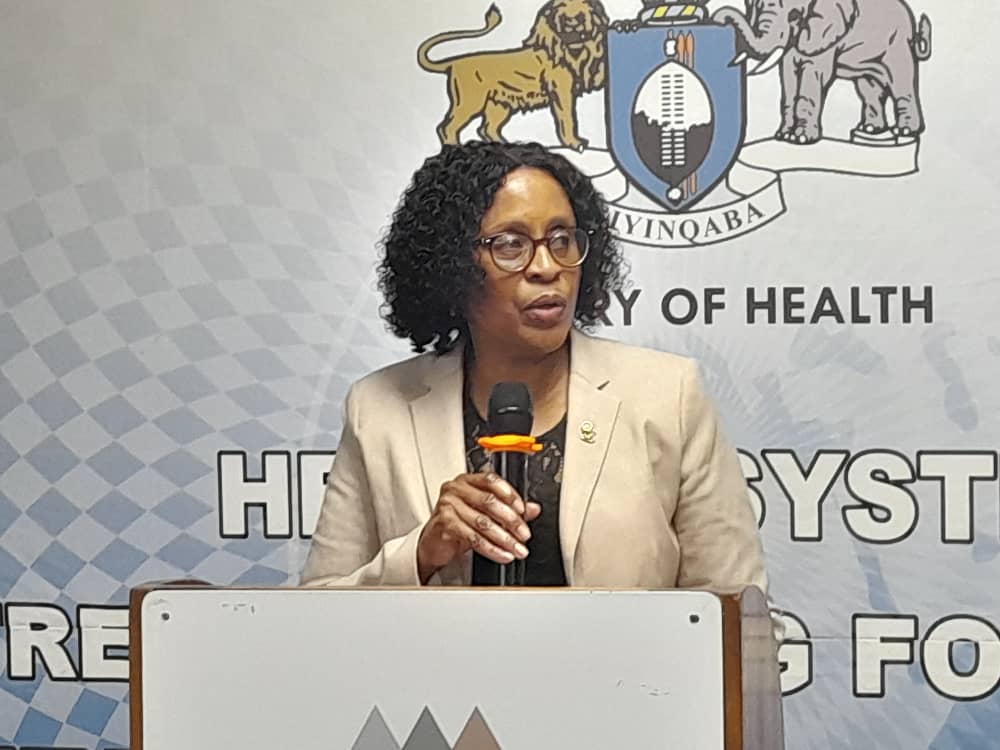Mbabane – The Ministry of Health today has announced the completion of a $20 million (about E345,470,000) project funded by the World Bank, aimed at enhancing reproductive, maternal, neonatal, child and adolescent health (RMNCAH).
Under Secretary in the Ministry of Health, Lungile Shongwe, said the Health Systems Strengthening for Human Capital Development (HSSHCD) project utilised E278 950 972,33 ($16 148 865) in five years of implementation, which is 80 percent of total disbursement when the project started in December 2020. Announcing the project closure in September 2025, Shongwe who was the project coordinator said also said the project reflects 75% utilisation rate with E259 607 463,38 ($15 029 042) as the actual disbursement while E66 523 427,67 ($3 851 135) was the undisbursed amount.
The project has seen the decentralisation of non-communicable diseases (NCD) service coverage expanded from 0% to 90% across primary health care facilities in five years. It has also focused on nutrition, and NCD services, specifically hypertension and diabetes across Eswatini, adopted a life course approach to address key human capital challenges, including stunting, child and adult mortality, and barriers to service accessibility, Shongwe said.
The initiative equipped the ministry with digital tools, establishing a comprehensive Community-Based Health Information System (CBHIS) for real-time data collection, alongside the Electronic Maintenance Management System (EMMS) to enhance infrastructure reliability.
The project aimed at strengthening health service delivery; increasing community demand for health services; and enhancing stewardship and governance. Shongwe emphasized that the project’s closure should serve as a gateway for ongoing public sector efforts to sustain and advance these initiatives.
Although the health sector is currently in the spotlight, the project has led to infrastructure development in the form of the Central Medical Stores (CMS) operations centre, the HMIS and the biomedical offices completions.

The project acquired eight double-cab vehicles as an addition to the ministry’s fleet. These vehicles were for deployment for supervision and logistics. Additionally, four cancer screening vehicles; a waste management truck and skips for safe disposal of medical waste were purchased.
The HSSHCD has been responsible for the training of 4,337 health workers – 2,908 of them being community health workers while 1,429 were healthcare workers; and seven midwives who completed advanced neonatology training and reassigned to Mbabane Government Hospital and Mankayane Hospital.
Others including planning officers received specialised training through the African Training Institute in Rwanda, South Africa and Kenya.
The project upscaled patient diagnosees with hypertension and/or diabetes; provided children under 5 years of age with a basic package of nutrition-specific services; reached adolescents with sexual and reproductive health services; reached pregnant women with at least 4 ANC that meet defined quality standards; and targeted health facilities that meet a minimum standard of quality as measured by a Health Facility Quality Index.
“Most project development objective indicators (PDOIs) show a strong upward trajectory, reflecting the project’s resilience and effectiveness,” Shongwe said, adding, “However, challenges were noted… due to national level stockouts of essential medicines and laboratory commodities.”










Discussion about this post